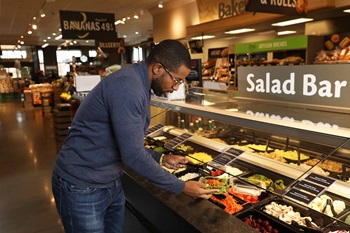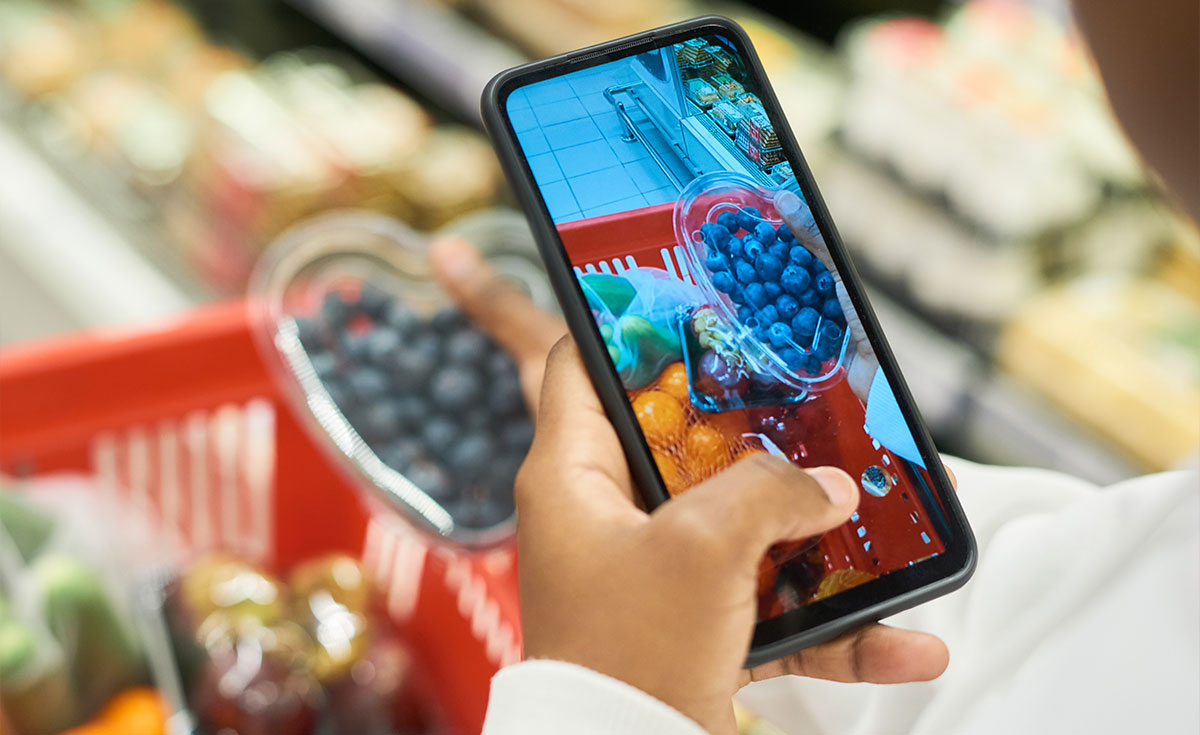By: Adam Seltzer, Intern, Marketing/Sales & Communications, Food Marketing Institute
 As a college student living off-campus for the first time this past year, I only recently learned to weekly grocery shop on my own. As a newbie, I’m eager to discover the most cost-and time-efficient ways to prepare and enjoy nutritious, fresh meals at home. For me, the secret has proven to lie in the power of foodservice at retail.
As a college student living off-campus for the first time this past year, I only recently learned to weekly grocery shop on my own. As a newbie, I’m eager to discover the most cost-and time-efficient ways to prepare and enjoy nutritious, fresh meals at home. For me, the secret has proven to lie in the power of foodservice at retail.
At the beginning of my sophomore year, I realized that I was the sole person responsible for putting together my meals on a daily basis. I felt overwhelmed, and frankly, a bit hopeless. As someone whose family regularly enjoys fresh, home-cooked meals, the idea of consistently dining on a cup of ramen noodles or a box of frozen chicken seemed like it would quickly become redundant. So how was I going to cook up meals each day that are healthy, fresh, and high-quality, but also convenient for a busy college student running on a tight schedule and budget? Soon enough I realized – I didn’t have to. I could rely on my grocery store for the solution.
According to The Power of Foodservice at Retail – Part 2, a staggering 65 percent of Americans don’t know what they are having for dinner at 4 p.m. What makes that statistic even more noteworthy is the fact that only 15 percent consider retail foodservice when they are unsure of what their next meal is. It appears that many people simply don’t recognize the unique value that grocery stores offer and that restaurants often do not.
Luckily, I quickly discovered the ability of retail foodservice to provide me with my everyday meals. According to consumers, the opportunity to combine getting dinner with grocery shopping for other items is seen as the greatest advantage of retail over restaurants and fast-food, followed by faster pick-up and better value. Some foodservice regulars – including myself – would even say that the food is often tastier. Furthermore, seven in ten food shoppers emphasize the importance of healthy, nutritious choices from both retail foodservice and restaurants – and most of these shoppers feel as though grocery stores provide sufficient information for them to make educated meal purchases.
So, it comes down to three words that demonstrate the value of buying meals at a grocery store – health, fresh, and convenience. This combination is virtually guaranteed when I go to pick-up a made-to-order dinner along with the laundry detergent I need. Supermarkets have an opportunity to emphasize the freshness, healthiness, and quality of the food itself, along with the convenience of one-stop shopping. That value proposition surely appeals to a college student like me as I hurry back for my club meeting before joining my friends for the hockey game.


 Industry Topics address your specific area of expertise with resources, reports, events and more.
Industry Topics address your specific area of expertise with resources, reports, events and more.
 Our Research covers consumer behavior and retail operation benchmarks so you can make informed business decisions.
Our Research covers consumer behavior and retail operation benchmarks so you can make informed business decisions.
 Events and Education including online and in-person help you advance your food retail career.
Events and Education including online and in-person help you advance your food retail career.
 Food Safety training, resources and guidance that help you create a company food safety culture.
Food Safety training, resources and guidance that help you create a company food safety culture.
 Government Affairs work — federal and state — on the latest food industry policy, regulatory and legislative issues.
Government Affairs work — federal and state — on the latest food industry policy, regulatory and legislative issues.
 Get Involved. From industry awards to newsletters and committees, these resources help you take advantage of your membership.
Get Involved. From industry awards to newsletters and committees, these resources help you take advantage of your membership.
 Best practices, guidance documents, infographics, signage and more for the food industry on the COVID-19 pandemic.
Best practices, guidance documents, infographics, signage and more for the food industry on the COVID-19 pandemic.
